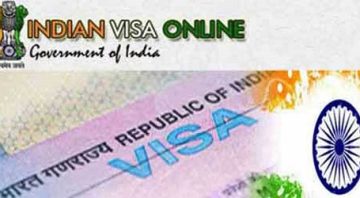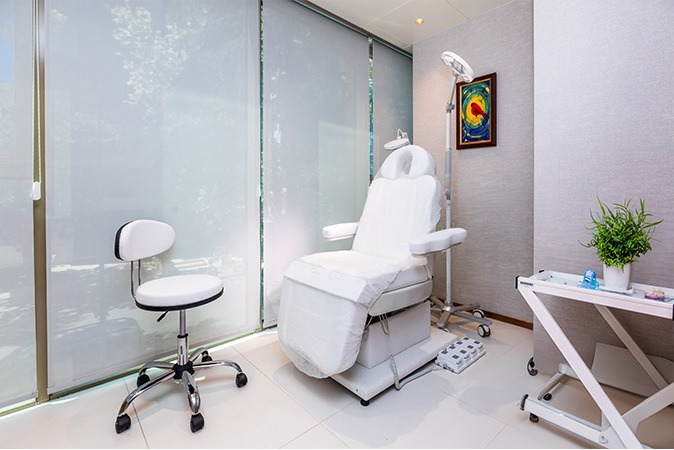In which case, a corneal transplant is needed?
- Those who want to get their vision back
- Who has severe scarring in the eyes due to repeated corneal scratch
- Due to sores present in the eyes
- Due to continuous irritation or swelling
- Due to a disease called Keratoconus or corneal bulge
What are procedures through which cornea transplantation can be done?
- Full-thickness corneal transplantation- Cornea is having multiple layers and if the damage involves all the layers, your ophthalmologist might opt for this procedure.
This is also called penetrating keratoplasty. In this procedure, your eye surgeon will replace your damaged cornea with the donor’s healthier one and stitch all the layers with a suture material thinner than hair. As the procedure involves all the layers of the cornea, the healing time might be increased. This can be done if the patient is suffering from
- Scarring
- Severe corneal injury
- Partial-thickness corneal transplantation- in this procedure your surgeon will inject air to lift off and separate the outside thin layer and a middle thick layer. Here only the upper two layers are getting involved in the surgical procedure. As it is less invasive in comparison to the previous one, there are fewer chances of infection in this case. Healing time will also be less. This can be done if the patient is suffering from
-superficial corneal scar
– If the bulging of the cornea has not involved the deeper portion of it.
- Endothelial keratoplasty- most commonly preferred procedure by eye surgeons. The endothelium is the inner layer of your cornea. For most of the patients who need to undergo corneal transplantation, their problem lies within the inner layer only.
This can be done in two ways:
- Descemet’s Stripping Endothelial Keratoplasty- in this procedure your surgeon will remove the endothelium and Descemet’s membrane above it and replace it with donor’s healthier endothelium and Descemet’s membrane i.e attached to the stroma. Here the surgeon doesn’t separate these layers from the stroma for easy handling.
- Another version of the same procedure is to replace the endothelium and Descemet’s membrane without stroma. This procedure is very sensitive as without stroma the separated corneal layer will be very much brittle and fragile to handle for the surgeon while doing the procedure. There will be improved healing and the recovery rate will be faster for this procedure.
What are the tests you should go for before undergoing a corneal transplant?
Before this cosmetic surgery, your surgeon will evaluate all the following points
- Complete blood count (CBC)
- Lipid profile(cholesterol test)
- General body weight
- Urine test
- MRI scan
- X-ray
- Echocardiography
- Neurophysiological examination
Hence, you should be ready to undergo a lot of tests.
What are the precautions you should take before undergoing corneal transplant surgery?
- Consult all your queries related to the procedure with your surgeons and clear your doubts.
- Make sure you inform all your past and present medical history to your doctor.
- If you are prone to some allergic reactions or you are taking any herbal supplements, you need to mention that too.
- If you are under any medications especially on blood thinners like aspirin or some NSAIDs like ibuprofen, naproxen you should inform your doc and stop or adjust the dosage of those medications before surgery according to your physician’s advice.
- If you are anemic, you should start having iron supplements before you go for surgery.
- Women on OCP(Oral contraceptive pill) should stop taking pills at least before one month of surgery.
- you should start using antibiotics drops according to your doctor’s prescription to avoid post-operative infection.
After getting confirmation from the lab reports and medical examination that you are undergoing corneal transplantation surgery, your surgeon or medical personnel will guide you and your family about the Dos and Don’ts before surgery.
How much time should a patient stay in the hospital after the surgery?
This depends on the type of anesthesia the patient has undergone. In corneal transplant patients, as the procedure has been done mostly under local anesthesia the patient might go home on the very same day. After successful transplantation, your medical personnel will evaluate all the tests during this time. .Make sure that someone should be there to accompany the patient after getting discharged from the hospital.
How much time will the corneal transplant procedure take?
It will take almost 30 mins to 1 hour to perform the complete procedure.
What are the FAQs you should ask your surgeon about after corneal transplantation surgery?
- What are all the medications you have to take?
- Will there be any follow-up visits?
- When can you resume your work and regular lifestyle?
- When can you start doing exercises?
- How to do the postoperative wound management and when the stitches will be removed if there are any?
What are some FAQs you should ask your surgeon about the corneal transplant procedure?
- What is the success rate of corneal transplant surgeries done by your surgeon?
- How is it possible for a deceased person’s cornea to become functional after the surgery?
- Will the new cornea start acting right after transplantation?
- What will happen if my body rejects the new cornea?
What are the risks you might face after corneal transplantation surgery?
- Allergic reactions to the anesthetic solution.
- blood clot.
- Detached retina
- Bleeding or hemorrhage
- Increased risk of infection.
- Glaucoma due to a sudden increase in blood pressure
- Corneal swelling
- Cataract
- Redness
- Continuous watering of eyes
- Pain
- Cloudy cornea
- Extremely sensitive to light
What are the post-operative instructions you should follow after corneal transplantation?
- Wear eyepatch continuously for 1-4 days after surgery.
- Avoid direct sunlight exposure to your eyes.
- Always use protective eyeglasses
- Use antibiotic eye drops prescribed by your surgeon
- You can take some OTC (over-the-counter) pain killer medications after consultation with your surgeon.
- You have to come for follow-up visits to your doctor. First, follow-up will be a day after surgery and then you have to come to your doctor’s office for subsequent follow-ups during the first year after the surgery.
- Try to lie on your back during nighttime as for transplantation your surgeon has used an air bubble inside the eye. To maintain the corneal tissue in the desired position, you have to lie flat for a few days after your surgery.
What to do if your body rejects the new cornea?
Your body’s immune system might act against the newly transplanted cornea by treating it as a foreign body. Thus you might face rejection of corneal tissue after surgery. To avoid it you have to be under immunosuppressive or anti-rejection drugs, which can lower your body’s immunity and you might become more prone to infection. To avoid this your doc will prescribe you antibiotics eye drops as the cornea is a very small tissue to be transplanted.
How much time will it take to heal completely after the corneal transplantation surgery?
The healing time might vary from person to person or the surgical procedure performed on the patient based on the case scenario but corneal healing will take place slowly as the cornea is the smallest tissue in which there is no blood supply.
How to choose doctors if you want to go for a corneal transplant surgical procedure?
- You can go through the reviews of those who have already been through corneal transplant procedures in multiple medical forums and if you are worried about some negative review, you can always consult with your doctor about the matter.
- Look for the experience of your doctor and positive patient stories.
- You can also look for the success rate of corneal transplantation surgery done by your surgeon.
How long will the surgical outcome last?
It will last forever.
Who are the best doctors for performing corneal transplants?
Well-experienced and board-certified ophthalmologists can perform the procedure. And make sure to check the accreditation of the hospital from where you are getting your corneal transplantation surgery done.
Why should you go for corneal transplant surgery in India?
Along with the high-quality lifestyle here in India, you will get well-experienced and skilled surgeons who are comfortable with the best and latest available technology. You will get personalized care from trained medical personnel. Hence it ensures shorter hospital stays and quicker recovery.
Any botched-up cases of corneal transplant surgery in India?
To date no such cases have been reported as here in India, surgeons are way more skilled and experienced. But to avoid these kinds of cases, you should choose your surgeon carefully.
Do you feel that the cost is way out of your budget? Are you looking for insurance?
In India, the majority of health insurance coverage is for serious ailments. That’s why the chances of getting coverage for the procedure are higher. You can consult with your financial advisor related to the matter and explore the possibilities along with your surgeon. Though nowadays EMI facilities are available in some financial agencies. Even after that, you are feeling it’s difficult for you to avail yourself of the insurance, you can always ask your doctor to write one letter to your insurer describing the importance of this surgery on your health. If your insurance company provides coverage also, it will bear a partial amount of its budget. So make sure you read the details and go for it. Even if your insurance company bears it now, you might have to pay a higher premium for later.
What are the other optical conditions that might not correct even after the successful corneal transplantation?
- Glaucoma
- Astigmatism due to the lack of convexity in the cornea.
- Diabetic retinopathy
- Macula degeneration which is mostly due to age related disorder.In this condition the central vision gets impaired and peripheral vision remains unaffected.
Takeaway- you should always choose a corneal transplant surgical procedure if your doctor is suggesting you for doing so and you should go for it whenever you will find a donor to gain an improved quality of your life with your improved vision. Nowadays it has become easy to undergo such a procedure with lesser complications due to improved surgical procedures and immunosuppressive or anti-rejection medication. Your ophthalmologist can change your glass and lens to include the astigmatism after the surgery. If you are going through some life-threatening diseases and don’t know what to do in this crisis, please feel free to contact us. We are always there to help you out!!






















